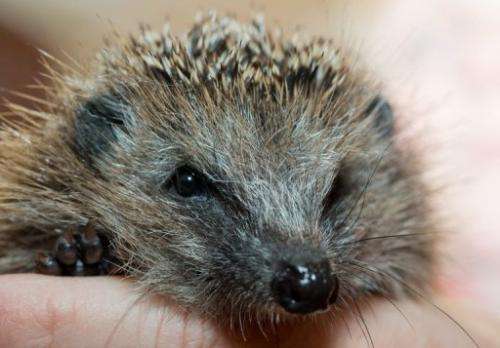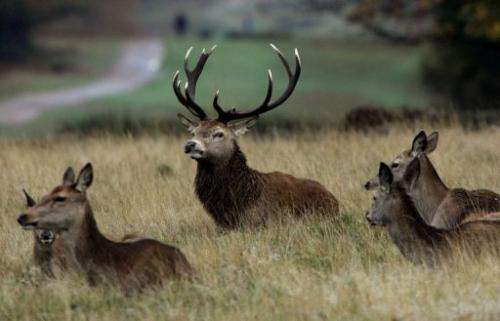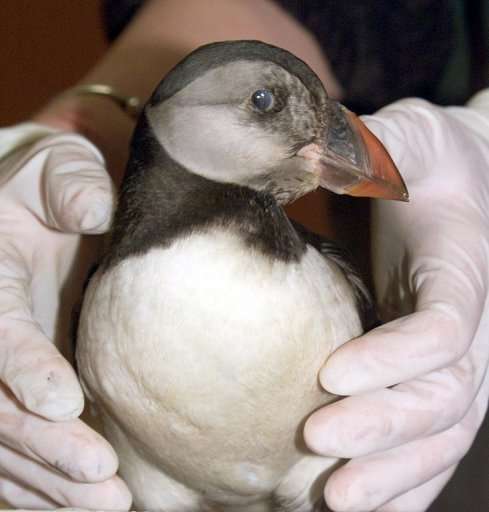A hedgehog is pictured on December 10, 2012 at a rescue centre in Burow, Germany. British wildlife is under serious threat, according to a major new study, which found that 60 percent of species asessed have declined in numbers over the past 50 years and 31 have declined sharply.
British wildlife is under serious threat, according to a major new study out Wednesday, which found that 60 percent of species assessed have declined in numbers over the past 50 years.
The State of Nature report, produced by 25 wildlife organisations working together for the first time, examined the population or distribution trends of 3,148 mammals, birds, insects and plants.
"This important document provides a stark warning: far more species are declining than increasing in the UK, including many of our most treasured species," broadcaster David Attenborough said in an introduction to the study.
"Alarmingly, a large number of them are threatened with extinction."
Some 31 percent of species surveyed have declined sharply, the study found. Its authors said that factors including climate change and the loss of habitats were having a "major impact" on wildlife.
Among butterflies alone, 72 percent of species have declined over the last ten years, while the number of breeding birds has fallen by 44 million since the late 1960s, the report said, citing targeted research projects.
Hedgehogs and red squirrels are continuing to shrink in numbers but otters are recovering, it added.
Deer in Richmond Park, west of London on November 9, 2004. British wildlife is under serious threat, according to a major new study, which found that 60 percent of species assessed have declined in numbers over the past 50 years and 31 percent have declined sharply.
However, the authors of the study said a lack of knowledge on the trends of most of the UK's plant and animal species means they can only report quantative trends for 5 percent of the 59,000 land and freshwater species in the UK and for very few of the 8,500 marine species.
Wildlife knowledge is strongly biased towards vertebrates and researchers know little about the fortunes of many invertebrates and fungi, the researchers said.
"The threats to the UK's wildlife are many and varied, the most severe acting either to destroy valuable habitat or degrade the quality and value of what remains," the study's authors said.
"Climate change is having an increasing impact on nature in the UK. Rising average temperatures are known to be driving range expansion in some species, but evidence for harmful impacts is also mounting."
A puffin at a bird clinic in Lorient, France, on February 20, 2000. The number of breeding birds in the UK has plummeted by 44 million since the late 1960s.
The study nevertheless found that targeted conservation has produced a legacy of success stories including the reintroduction of red kites.
"With sufficient determination, resources and public support, we can, and will, turn the fortunes of our wildlife around," the authors said.
© 2013 AFP

























